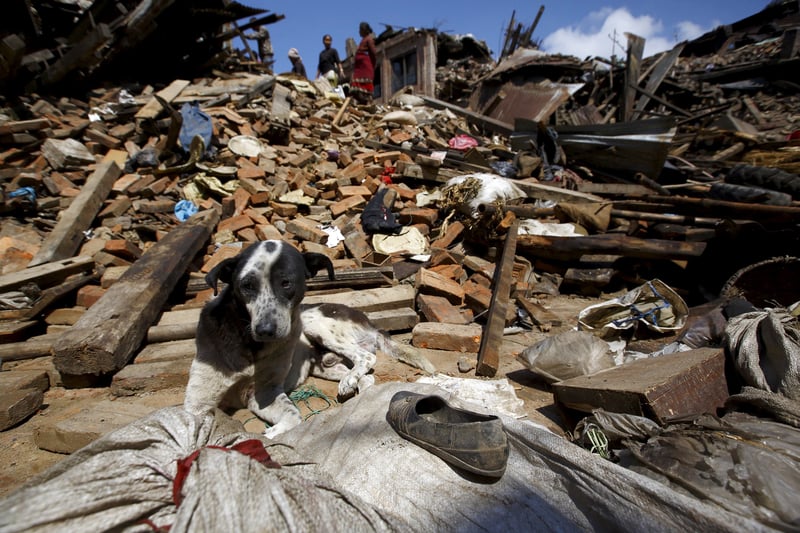
After earthquake, disaster team heading to Nepal
News
A team of our disaster response vets are preparing to deploy to Nepal to help animals who've been injured or left without shelter.
On Saturday a devastating 7.9 magnitude earthquake hit Nepal, causing widespread destruction and many fatalities. We are working with the authorities to join the international effort and complement the humanitarian relief, as the full extent of the animal need becomes clear.
We do know that there will be an urgent need for treatment of injuries sustained in the earthquake and emergency supplies of food and water. We will also be running a mobile vet clinic to provide medical support for animals and support for their owners.
Mike Baker, our Chief Executive said: “The scale of this disaster is catastrophic for both people and animals. Our team of disaster specialist vets are on their way to Kathmandu to give desperately needed help.
“Early indications are that animals will be in dire need; injured, starving, open to the elements and at high risk of disease. By helping them, we will also help the people who rely so heavily on them for their livelihoods, transport and food.”
Nepal is a country reliant on agriculture, employing over 70 percent of the population and contributing 33 percent of GDP. Our work protecting those animals impacted by the earthquake, will also help to protect the future livelihoods of the people of Nepal.
Disaster responses rightly prioritize people’s immediate needs, however the long term recovery from disasters is inextricably linked with the well-being of their animals. Nepal is one of Asia’s poorest countries with many families living in poverty and relying on agriculture to make ends meet. The recovery from this earthquake will inevitably take a long time, but by helping animals, we can help provide some stability for the futures of the communities.
You can make all the difference for animals suffering by donating as little as $5 to our Disaster Relief Fund.
Keep up to date with our activities in Nepal on Facebook and Twitter and learn more about our work responding to natural disasters all over the world.